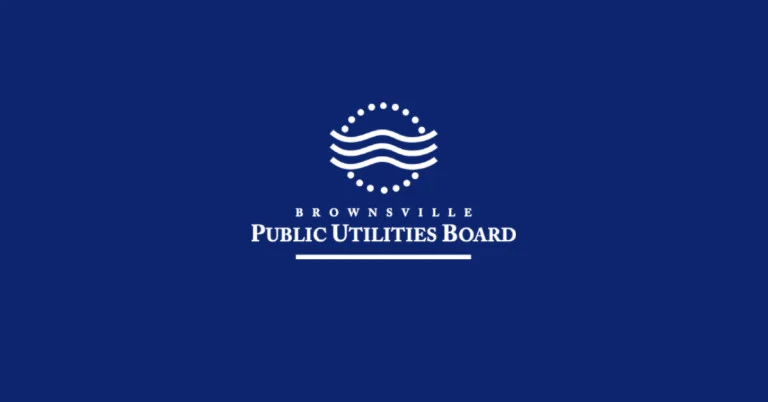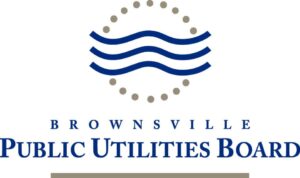Brownsville Public Utilities Board Implements Asset Management Best Practices
solutions
sectors

Brownsville Public Utilities Board Implements Asset Management Best Practices
The Brownsville Public Utilities Board (BPUB) was formally chartered by the city of Brownsville in 1960 to provide electrical, water and wastewater services to its customers in the southernmost part of Texas.
Under the charter, management, operation and control of the city’s combined water, wastewater and electric utilities systems were delegated to the BPUB Board of Directors. By delivering exceptional electric, water and wastewater services to the Brownsville area, BPUB has set the standard as a customer-focused, municipally owned utility (MOU) offering reliable services the community can depend on. Today, BPUB is ranked as one of the largest MOUs in the state and country.
Implementing a Corporate Asset Management Plan is a Strategic Priority
 One of the strategic priorities identified by BPUB is the implementation of a corporate asset management plan. Asset management is an integrated, life cycle approach to effective stewardship of infrastructure assets to maximize benefits, manage risk, and provide satisfactory levels of service to the public in a sustainable and environmentally responsible manner. The goal of BPUB’s corporate asset management plan is to create a consistent and standardized approach throughout the organization, while allowing flexibility to interpret and apply practices for different infrastructure classes.
One of the strategic priorities identified by BPUB is the implementation of a corporate asset management plan. Asset management is an integrated, life cycle approach to effective stewardship of infrastructure assets to maximize benefits, manage risk, and provide satisfactory levels of service to the public in a sustainable and environmentally responsible manner. The goal of BPUB’s corporate asset management plan is to create a consistent and standardized approach throughout the organization, while allowing flexibility to interpret and apply practices for different infrastructure classes.
BPUB sought an experienced industry partner to help execute its Asset Management Strategic Initiative. They identified Life Cycle Engineering (LCE) as a partner with significant experience in helping customers establish asset management strategic plans and integrate those plans into their organizational culture. LCE brought important core competencies to the partnership: defining best-practice asset management strategies; completing asset management assessments; working collaboratively to effect enterprise-wide transformational change; and providing standards-based training.
Executing an Asset Management Strategic Initiative Begins with Education, a Gap Analysis and a Project Roadmap
LCE leveraged its 40+ years of asset management experience and its Asset Management Framework to provide education, a gap analysis and an asset management project roadmap.
The first phase was to educate BPUB’s executive management on the current state of BPUB’s asset management practices and outline a vision for the future. LCE delivered an ISO 55000 workshop that covered the key aspects of an asset management strategy and system based on applying the ISO 55000 Asset Management Systems requirements to create a risk-based asset management program. This workshop guided the BPUB team to draft its policy, strategy and objectives document and prepared the team for the development of the underlying Asset Management Plan (AMP).
In the second phase, an LCE subject matter expert assessed BPUB’s existing AMP and compared it to the requirements of an ISO 55000-compliant system. He worked with BPUB’s departmental teams to take into account service and performance level requirements, updated the asset inventory listing and completed the new AMP template for review by the Board of Directors.
In the third phase, LCE performed an Asset Management Maturity Assessment to create a gap analysis at a procedural level of the business processes that should be in place to provide robust compliance with the ISO 55000 requirements. The assessment included two parts, an assessment of what ISO 55000 refers to as the “common management system” and a review of 80+ asset management processes arranged across nine knowledge domains.
In the fourth phase, to help BPUB define a future vision for asset management, LCE conducted a Vision and Roadmap Working Session. In this session LCE’s experts reviewed the Asset Management Policy, Strategy and Objectives developed during the executive workshop; reviewed the gaps found, corrected and remaining in the AMP; reviewed the findings and recommendations of the Asset Management Maturity Assessment; and delivered a roadmap with recommendations for closing the gaps. The roadmap report included a detailed, written gap analysis between the current state of BPUB’s asset management and the ideal state of asset management. A separate project roadmap reflected the strategies and actions recommended to addresses the gaps in information, resources and finances.
As a result of educating BPUB’s management team and performing an asset management assessment that identifies gaps between current state and ISO standard requirements, BPUB’s management team now understands the value of asset management best practices as well as the requirements contained in the ISO 55000 standard. They have established their Asset Management Policy, Strategy and Objectives and understand the gaps that need to be closed for them to realize the benefits of establishing a true, best-in-class asset management system. Their team has made significant progress and their project roadmap for the future clearly lays out the next steps in their improvement journey.
Implementing Asset Management Best Practices Will Boost Reliability and Service to Customers
In early 2019 the BPUB management team and LCE presented the findings to the BPUB Board of Directors and received approval to begin a new implementation phase. In this phase we will:
- Lay the foundations of holistic asset management by communicating the vision of asset management with the entire company, implementing effective organizational change management to support the transformation.
- Develop proven best-practice business processes to improve the reliability engineering function. This will increase system reliability by identifying the critical assets and developing effective Pm / PdM strategies.
- Deploy best-practice maintenance work management functions to ensure the improved maintenance strategies are being efficiently executed using the proper skills, parts, tools and procedures.
This implementation phase is designed to boost the reliability of BPUB’s services, improving the service levels their customers receive.

